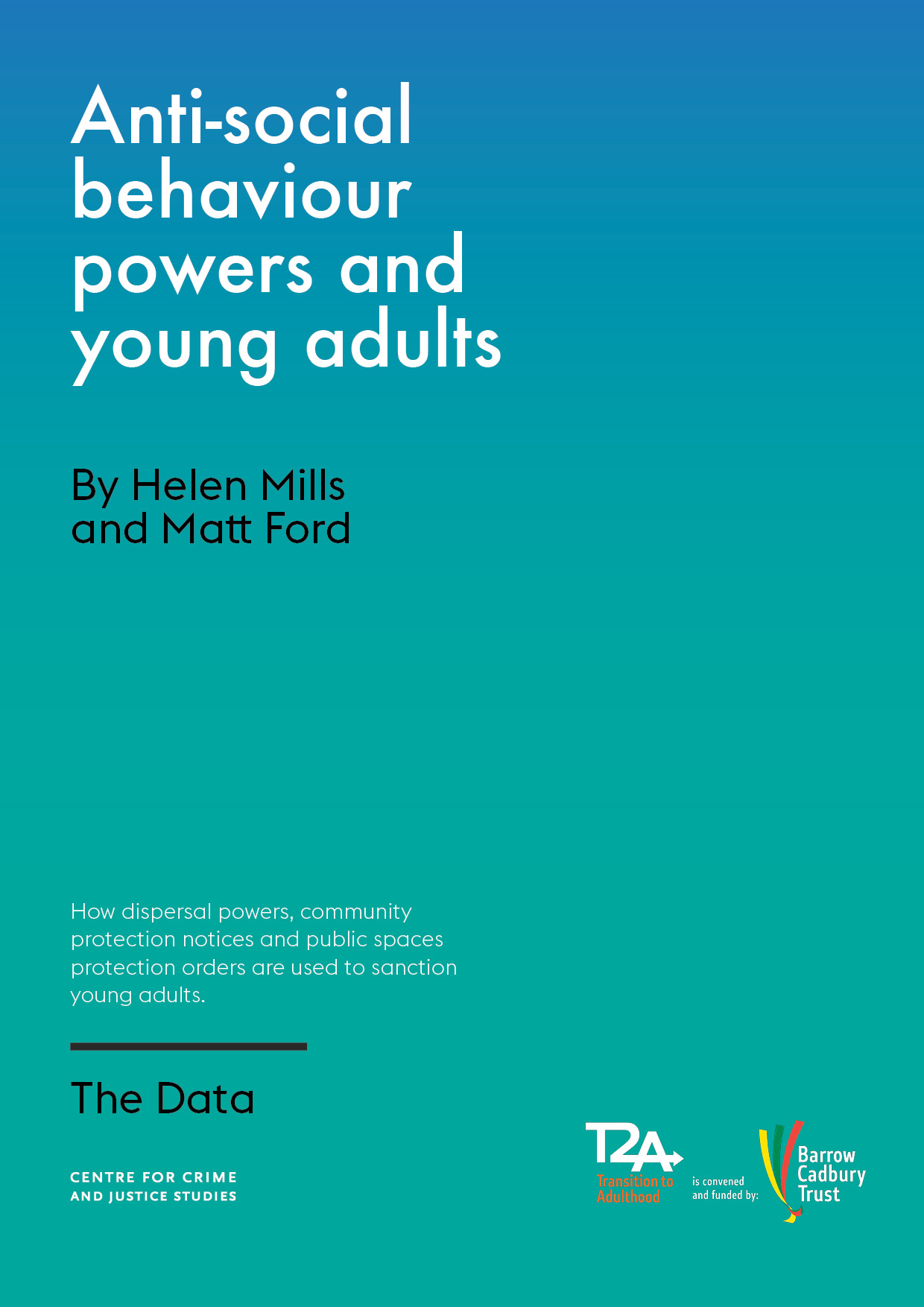This data briefing shows how three key antisocial behaviour powers are being used to sanction young adults (18 to 25 year olds) in England and Wales.
This briefing provides the most comprehensive picture possible about the sanctions young adults have received as a result of three key antisocial behaviour powers, from the behaviours for which young adults are sanctioned, to where young adults are prosecuted and the court sentences they receive.
It is based on over 800 freedom of information requests to all councils and police forces in England and Wales, as well as to the Ministry of Justice regarding prosecutions for breach of the three measures.
It details the significant gaps in the data which prevent us getting a full national picture of the numbers of young adults sanctioned, particularly in terms of the number of young adults who have been moved on or subject to other local sanctions such as a fixed penalty notices.
It also documents the variation in the prosecution of young adults for breach in relation to these three powers (a criminal offence). Young adults are shown to be a key group on the receiving end of these sanctions; 36 per cent of all prosecutions for breach in England and Wales are young adults. The briefing reveals significant variations in relation to ethnicity and geography in this regard, including:
- Young Black men disproportionately affected by ASB measures in London.
- A high concentration of the use of these powers in a small number of areas. Just three areas account for 42 per cent of all prosecutions of young adults in England and Wales.
Background
The briefing covers three of the six anti-social behaviour (ASB) powers which have been in operation (dispersal powers, community protection notices and public spaces protection orders). All are powers mainly concerned with sanctioning behaviour in public places. A wide range of behaviours have been targeted by these powers, including street drinking, car racing and begging.
The powers covered by this briefing have their origins in ASB strategies in operation for two decades. The ASB framework was the subject of a significant overhaul in 2014, one result of which was the creation of new mechanisms for the potentially much more extensive use of ASB responses by councils, housing providers and the police.
Implications for future practice
The report raises a number of implications for future practice. Why are young adults more likely to be prosecuted than other age groups and can their needs be better understood? It also points to the need for better data collection and understanding regarding current ASB work.
Future information
This publication sits alongside a second briefing which looks at ASB practitioners’ approaches to young adults, including eight examples of using these powers which are particularly pertinent to this age group.
We are grateful to the Barrow Cadbury Trust for supporting this project.
Selected media coverage
- ‘Dispersal orders “not fair” on young people who bear the brunt of them’, BBC News, 11 March 2024
